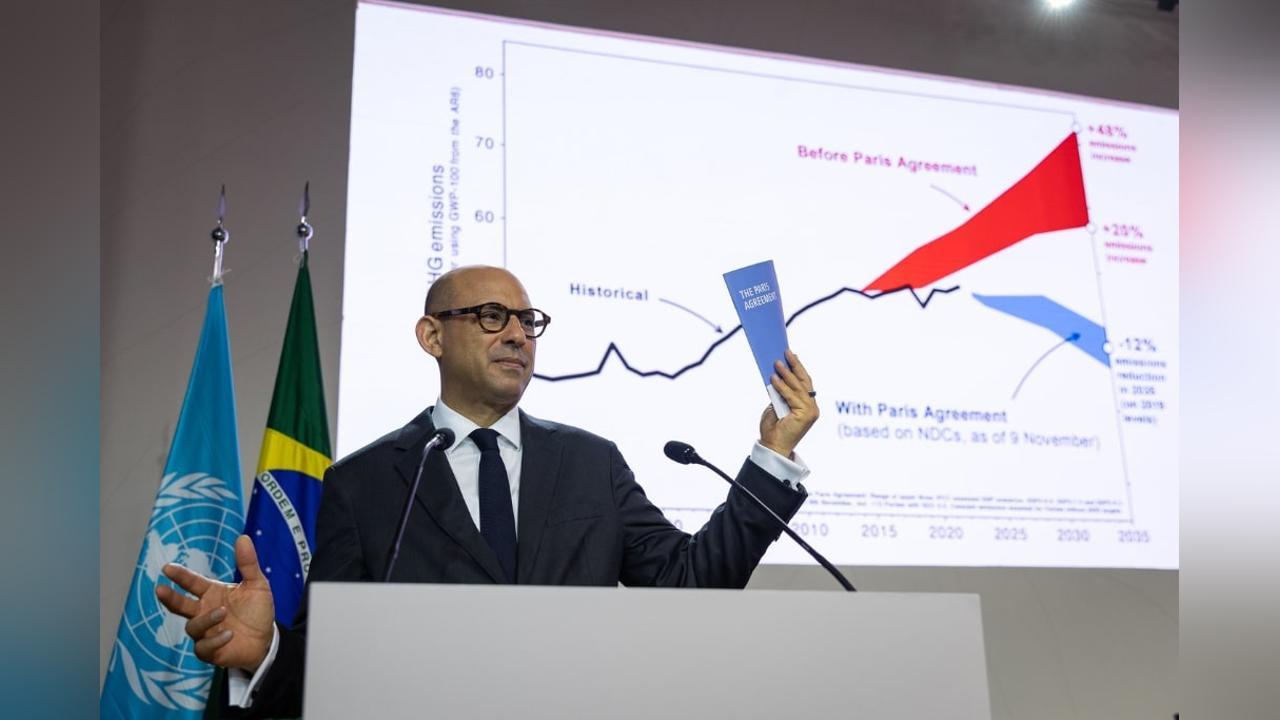Africa-Press – Eswatini. Global greenhouse gas emissions could drop by about 12% by 2035 compared to 2019 levels if all current national climate pledges are fully implemented, according to a new update from the United Nations Climate Change Secretariat (UNFCCC).
The updated Nationally Determined Contributions (NDCs) Synthesis Report, released on 10 November, assesses the latest round of climate commitments under the Paris Agreement. It compiles data from 113 countries, including new or revised pledges submitted between 1 January 2024 and 9 November 2025. Together, these nations account for around 69% of global emissions.
According to the report, total emissions in 2035 could reach 48.9 gigatonnes of CO2 equivalent when land use and forestry are factored in—representing a 12% decline from 2019 levels. Without land use changes, emissions would be slightly higher at 49.4 gigatonnes, or 7% lower than in 2019.
Simon Stiell, the Executive Secretary of the United Nations Framework Convention on Climate Change (UNFCCC), said the findings highlight “progress, but not at the speed or scale required.” He urged governments to “dramatically strengthen their NDCs and accelerate implementation if the world is to keep 1.5°C within reach.”
The data shows that if countries follow through on both their unconditional and conditional targets, emissions could drop by up to 14%, while relying only on unconditional pledges would yield a 10% reduction.
The report draws a sharp contrast with projections made before the Paris Agreement was adopted in 2015, when global emissions were expected to rise by 20–48% by 2035.
The list of countries with updated NDCs includes China, the European Union, South Africa, Rwanda, Indonesia, and Mozambique, among others.
Still, the UNFCCC warns that even with current pledges, the planet remains far from the trajectory needed to limit warming to 1.5°C above pre-industrial levels, as outlined by the Intergovernmental Panel on Climate Change (IPCC).
“Incremental progress is not enough,” Stiell said. “Every fraction of a degree matters, and every year of delay raises the human and economic costs of inaction.”
For More News And Analysis About Eswatini Follow Africa-Press







